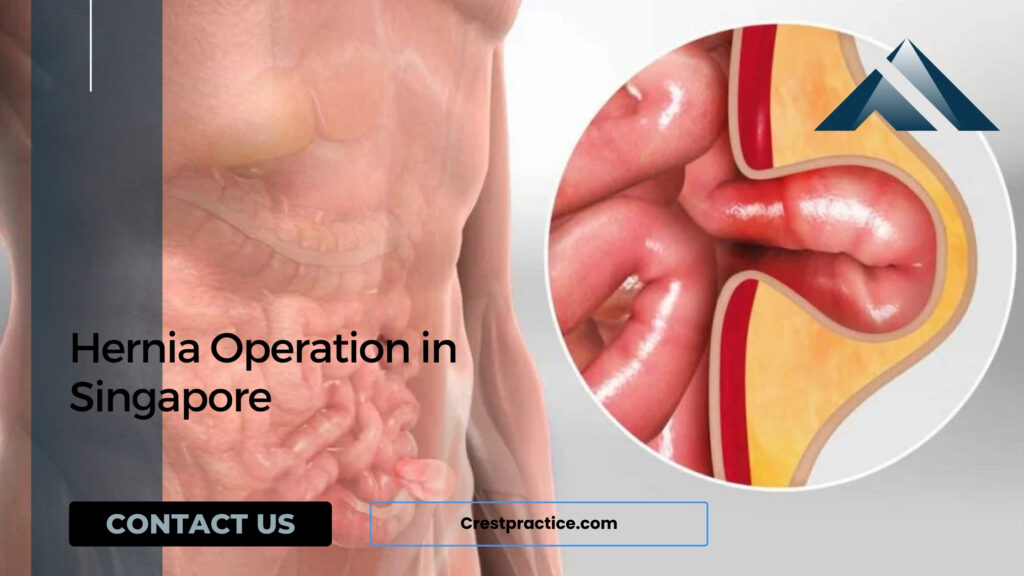A hernia occurs when an organ or fatty tissue pushes through a weak spot or opening in the surrounding muscle or connective tissue. It is a common condition that can occur in various areas of the body. The most frequent types include inguinal, umbilical, and hiatal hernias. While many hernias cause mild discomfort, surgery is often necessary to prevent complications. Hernia operation in Singapore is performed using advanced techniques, ensuring quicker recovery and minimized risks. Here’s a guide to the types of hernia surgeries, the procedures involved, and what you can expect during recovery.
Types of Hernias and When Surgery is Needed
There are several types of hernias, each requiring different approaches to treatment. The need for surgery depends on the hernia’s size, location, and symptoms. Some common types include:
- Inguinal Hernia
- Umbilical Hernia
- Hiatal Hernia
- Incisional Hernia
- Femoral Hernia
Surgery is often recommended when a hernia causes pain, grows in size, or leads to complications like strangulation, where the blood supply to the affected organ is cut off. Strangulation can lead to severe complications if left untreated, making timely surgery essential.
Hernia Surgery Procedures in Singapore
Several surgical options are available for hernia treatment, tailored to the type and location of the hernia. The Hernia operation Singapore surgeries performed are minimally invasive, meaning smaller incisions and faster recovery times. Common procedures include:
-
Open Hernia Repair Surgery
This traditional method involves a larger incision over the hernia site. The protruding tissue is pushed back into place, and the muscle defect is repaired, often with a synthetic mesh to prevent recurrence. -
Laparoscopic Hernia Surgery (Minimally Invasive Surgery)
Laparoscopic surgery uses small incisions through which a camera and specialized instruments are inserted. This method offers several advantages, including less pain, smaller scars, and quicker recovery. -
Robotic-Assisted Hernia Surgery
A more advanced form of laparoscopic surgery, robotic-assisted surgery provides enhanced precision and control. The surgeon uses robotic arms for improved visualization and accuracy, ensuring a more precise repair.
Recovery After Hernia Surgery in Singapore
Recovery varies depending on the type of surgery performed and the patient’s overall health. However, most patients can expect the following:
-
Hospital Stay: Open hernia repair may require a short hospital stay, while laparoscopic and robotic surgeries are usually outpatient procedures, allowing patients to go home the same day.
-
Pain Management: While some discomfort is expected, pain is manageable with medication. Minimally invasive techniques generally result in less pain and a quicker return to normal activities.
-
Post-Surgery Care: Patients are advised to avoid heavy lifting, strenuous activities, and driving for several weeks after surgery. Regular follow-up appointments with the surgeon are crucial for wound care and check-ups.
-
Full Recovery: While many patients can return to light activities within a few days, full recovery may take between 2 to 6 weeks, depending on the surgery type and individual healing.
Why Choose Crest Surgical Practice for Your Singapore Hernia Operation?
At Crest Surgical Practice, we use advanced techniques like laparoscopic and robotic-assisted surgery for Singapore Hernia operation treatment. These procedures not only reduce recovery times but also minimize risks, ensuring a smoother recovery journey. To book an appointment, call +65 6908 9800 and take the first step toward a healthier, hernia-free future.



“I agree with your points, very insightful!”